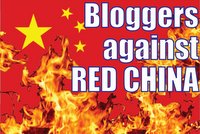
China Looks to the Middle East–Beijing’s evolving bid to become a superpower
Frontpage
In late July, Qiushi, a state-controlled publication and recognized mouthpiece of the ruling Chinese communist party, released an essay stating that China should strengthen its military to safeguard against “instability and threats to national security.”
More important for China’s neighbors, the essay said, “At present, the political and military environment on China’s periphery is quite complex, and unpredictable factors are clearly rising.”
The Pentagon’s most recent Quadrennial Defense Review, a military forecast delivered to Congress, confirmed Beijing’s change in thinking, saying….
“China’s military modernization has taken on an “extra-regional” capability, which will allow Beijing to project military power far beyond its immediate perimeter.”
As China’s needs have evolved, so too has its foreign policy. Although still critical to Beijing, the country’s foreign policy is no longer based entirely on Taiwan reunification. Rather, Beijing’s foreign policy has become more complex and increasingly global in nature, driven primarily by the country’s insatiable need for energy to fuel its economic and military expansion.
With a 2.3 million-man standing army, the world’s largest, and a defense budget estimated to be US $90 billion by most Pentagon experts, China is rapidly positioning itself to address not only the unresolved issue of Taiwan, but also energy security issues located far beyond its borders in the Middle East. Today, 58% of China’s oil imports come from the Middle East region. By 2015, that figure will stand at 70%.
A recent report by the International Energy Agency (IEA) predicts that by 2030, Chinese oil imports will equal imports by the U.S. Unless dramatic changes are made by Beijing in the areas of conservation, energy exploration and hybrid technologies, China’s future will rest beneath the sands of the Middle East.
Beijing recently increased its presence in energy-rich Iran, where a joint agreement was announced in July to develop the Khustan province, home to 90 percent of Iran’s strategic oil reserves and a border province with Iraq. In early August, Tehran announced a US$2.7 billion oil refinery deal with China’s state-controlled Sinopec that will help the Tehran regime expand its rationed gasoline supply. China has also increased its energy and defense relations with U.S. allies Saudi Arabia, Kuwait and Egypt.
Make no mistake; Chinese President Hu Jintao and the country’s communist leadership would like nothing more than to divest themselves entirely from Middle East energy and the uncomfortable dependence it creates. But like the US and its Western allies, Beijing remains heavily dependent on Middle East oil for its survival.
To address the issue of Middle East energy dependence, Beijing has agreed to cooperate with countries in Africa, North America and South America regarding production, exploration and pipeline projects. But in many cases, hopes for a quick remedy have been dashed, with state-owned energy conglomerates meeting organized resistance from local populations who view China as an energy “exploiter,” not energy “explorer.”
Indeed, the likelihood of a U.S.-China confrontation in the Middle East over energy is increasing. To meet this challenge, the Bush administration should broaden the ongoing “China threat” discussion to include more than just Taiwan. Previous statements by U.S. national security experts dismissing China as merely a “regional threat unable to project power beyond Asia,” are shortsighted.
In addition, the belief that economic empowerment alone will eventually force Beijing to embrace democratization, thus eliminating the growing China threat, is based on wishful thinking, not fact. Ironically, economic empowerment has had the opposite effect, giving Beijing a means to project economic, political and military influence well beyond Asia.
While recent U.S. naval exercises to improve rapid response capabilities in the Pacific are prudent at this time, they should be made in conjunction with an upgrade of Middle East military forces. Of course, selling this idea to the American public and Congress will be no easy task.
The development of a bifurcated China threat strategy focusing not only on the Pacific, but also on other areas such as the Middle East will require a revolution in U.S. foreign policy. Under such a scenario, China would be identified not only as a regional threat, but a global threat as well.
The Bush administration needs to revise its “Taiwan-centric” foreign policy strategy and identify other emerging threats to U.S. national security, namely, China’s increasing presence and influence in the volatile Middle East.
An emerging China presents profound challenges for the world. It is Washington’s responsibility to recognize this changing environment and prepare, otherwise, the result could be catastrophic for future generations of Americans.

Wild Thing’s comment…..
During Clinton’s reign of terror as President, he did everything he could to help China become a superpower. We can never forget that, I know I won’t.
China needs to be watching like a hawk!
And there was always this from a past article in 2003:
Newly declassified documents show that President Bill Clinton personally approved the transfer to China of advanced space technology that can be used for nuclear combat.
The documents show that in 1996 Clinton approved the export of radiation hardened chip sets to China.
U.S. intelligence sources stated that the newly released documents illustrate the extent to which the Clinton White House placed trade – and trade with China specifically – above national security.
“In all likelihood we will be glowing in the dark before we discover the true extent of the Clinton decade of betrayal,” stated Rick Fisher, Asian Security Fellow at the Center for Security Policy.


I wonder how the muslims of the Middle East will get along with the “godless” Chinese?. It may be hatred of the West that will allow an unesy alliance.
America needs to develop more oil resources at and near home to include Alaska, oil shale and offshore oil. We need an aggressive President and a Conservative Congress with spine to do this, as the wacky Liberals will fight energy development all the way to our demise
Tom this is a sore spot with me. I will never in my life understand why the left does not want to go after the oil right here on our land or ocean that we have. All that enviromental bs is just that……….BS!
The left needs to be told to shut up and they are not going to rule on this no matter what. It makes me furious.
This is definitely something that we can expect from Red China in their ideals of world domination. Part of me wants to agree with Tom but if you remember Hitler and Mussolini, they got along until Hitler was done with Italy – the rest of course is history. I foresee the Islamofascists to act the same way with China.
***I’ll make sure to get this on my blog tonight with the appropriate credit. Thanks for the publicity.
‘Tis very interesting. Despite the buildup of the PLA/PLAAF/PLAN, Red China still has precious little capability of directly affecting the Middle East militarily. Morever, we just happen to be sitting astride both the land and sea routes between China and the Middle East. However, they can and will supply the Islamokazis with hordes of military equipment (indeed, in some cases, they already are). I’m still more-worried about them headed to the Southern (South China Sea) or Northern (Siberia) Resource Areas; even though they’re less-developed than the Middle East, the ChiCom military buildup is geared more toward operations in those areas.
As for the ChiCom/Islamokazi alliance, I’m hoping the operative historical guide is Hitler/Stalin. I hope that, in that case, we wipe out both sides.
Mr. Tastic , thank you. I am glad you got to see this. And I am really glad you have the blogroll for this topic that is so very important.
steveegg that works for me. I want them all gone. Thank you!
fuck u
fuck u
fuch u
fuck u